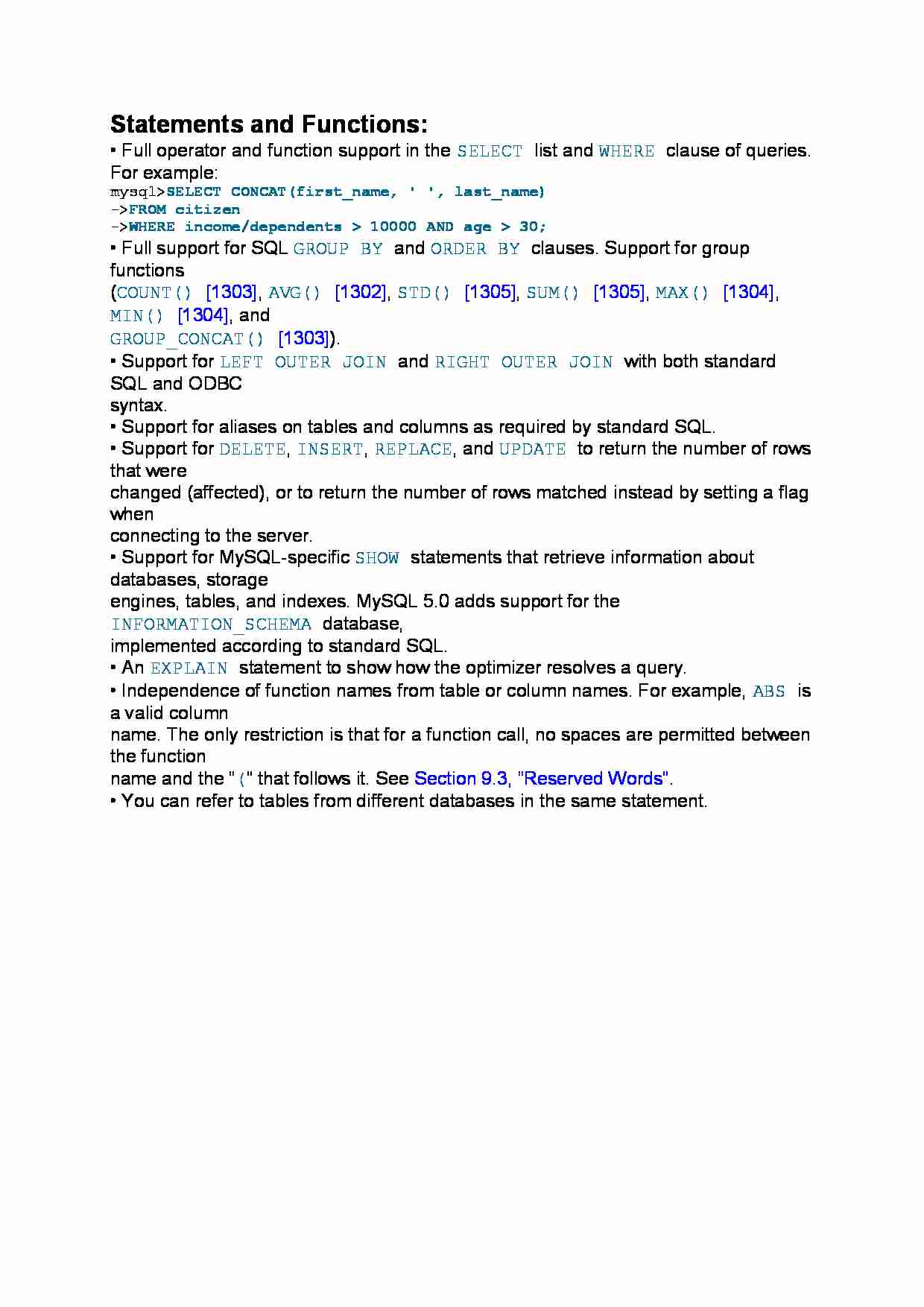
Statements and Functions:
• Full operator and function support in the SELECT list and WHERE clause of queries. For example:
mysql SELECT CONCAT(first_name, ' ', last_name)
- FROM citizen
- WHERE income/dependents 10000 AND age 30;
• Full support for SQL GROUP BY and ORDER BY clauses. Support for group functions
(COUNT() [1303], AVG() [1302], STD() [1305], SUM() [1305], MAX() [1304], MIN() [1304], and
GROUP_CONCAT() [1303]).
• Support for LEFT OUTER JOIN and RIGHT OUTER JOIN with both standard SQL and ODBC
syntax.
• Support for aliases on tables and columns as required by standard SQL.
• Support for DELETE, INSERT, REPLACE, and UPDATE to return the number of rows that were
changed (affected), or to return the number of rows matched instead by setting a flag when
connecting to the server.
• Support for MySQL-specific SHOW statements that retrieve information about databases, storage
engines, tables, and indexes. MySQL 5.0 adds support for the INFORMATION_SCHEMA database,
implemented according to standard SQL.
• An EXPLAIN statement to show how the optimizer resolves a query.
• Independence of function names from table or column names. For example, ABS is a valid column
name. The only restriction is that for a function call, no spaces are permitted between the function
name and the “(” that follows it. See Section 9.3, “Reserved Words”.
• You can refer to tables from different databases in the same statement.
... zobacz całą notatkę



Komentarze użytkowników (0)